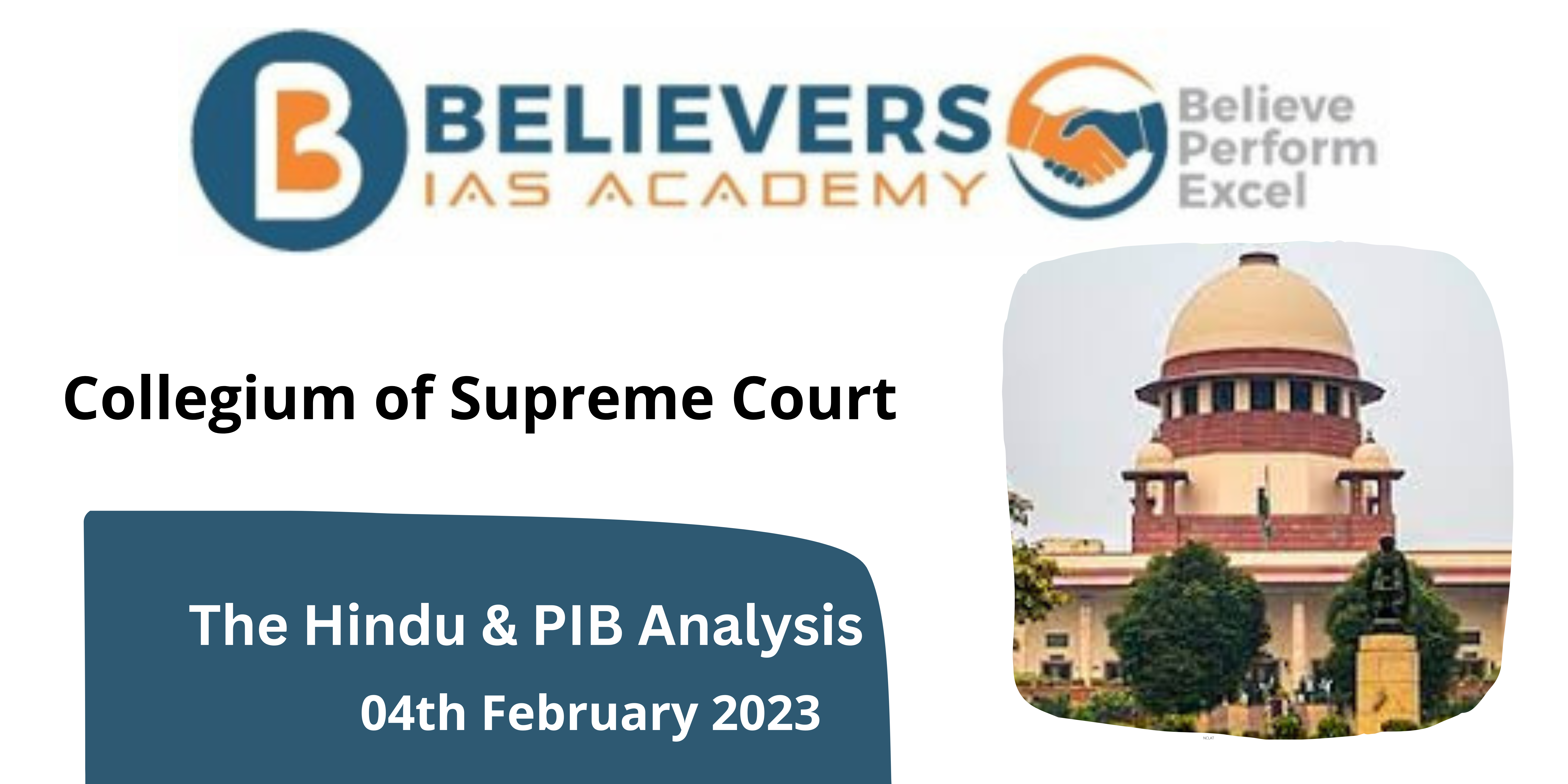Collegium of Supreme Court
#GS-02 Indian Judiciary
For Prelims
Collegium
- Collegium is an appointment mechanism developed by the Supreme Court to recommend Judges to Supreme Court and the various High Courts.
- It holds no basis in law or the constitution but was developed through judgements delivered by the Supreme Court.
- Presently the Collegium consists of the Chief Justice of India and four of the most senior Judges of the Supreme Court.
- The recommendation of Collegium has been made binding on the President.
- For a person to be recommended they have to gain the approval of at least 4 out of the 5 members of Collegium.
- If even 2 of the judges are against the recommendation, the CJI is not allowed to recommend that person to the President.
For Mains
Evolution of Collegium:
- Article 124 of constitution says that “Every Judge of the Supreme Court shall be appointed by the President by warrant under his hand and seal after consultation with such of the Judges of the Supreme Court and of the High Courts in the States as the President may deem necessary for the purpose.”
First Judges Case, 1982:
- In this judgement the Supreme Court decreed that the “primacy” of the CJI’s (Chief Justice of India) recommendation on judicial appointments and transfers can be refused for “cogent reasons.”
Second Judges Case (1993):
- Supreme Court held that the “consultation” under article 124 really meant “concurrence”.
- However, Supreme court also stipulated that CJI’s opinion alone is not enough and a collegium consisting of CJI and two most senior judges of the Supreme Court must give the recommendation.
- Hence the collegium system was born.
Third Judges Case (1998):
- Supreme Court expanded the collegium to CJI along with four most senior Judges of Supreme Court.
- This is the current collegium structure.
National Judicial Appointments Commission
National Judicial Appointments Commission was created by the Ninety-Ninth Constitutional Amendment Act of 2014.
Composition of NJAC
- The Chief Justice of India
- 2 senior-most judges of the Supreme Court
- The Law Minister of India
- 2 eminent members that are chosen by the Selection Committee
Fourth Judges Case (2015):
- This case is also known as National Judicial Appointments Commission Act (NJAC) case.
- In this case the Supreme Court declared NJAC as unconstitutional since it violates the independence of Judiciary which itself is a basic Structure of the Constitution.
Source “5 collegium-picked judges to be posted soon: Centre”
For more updates Click Here




